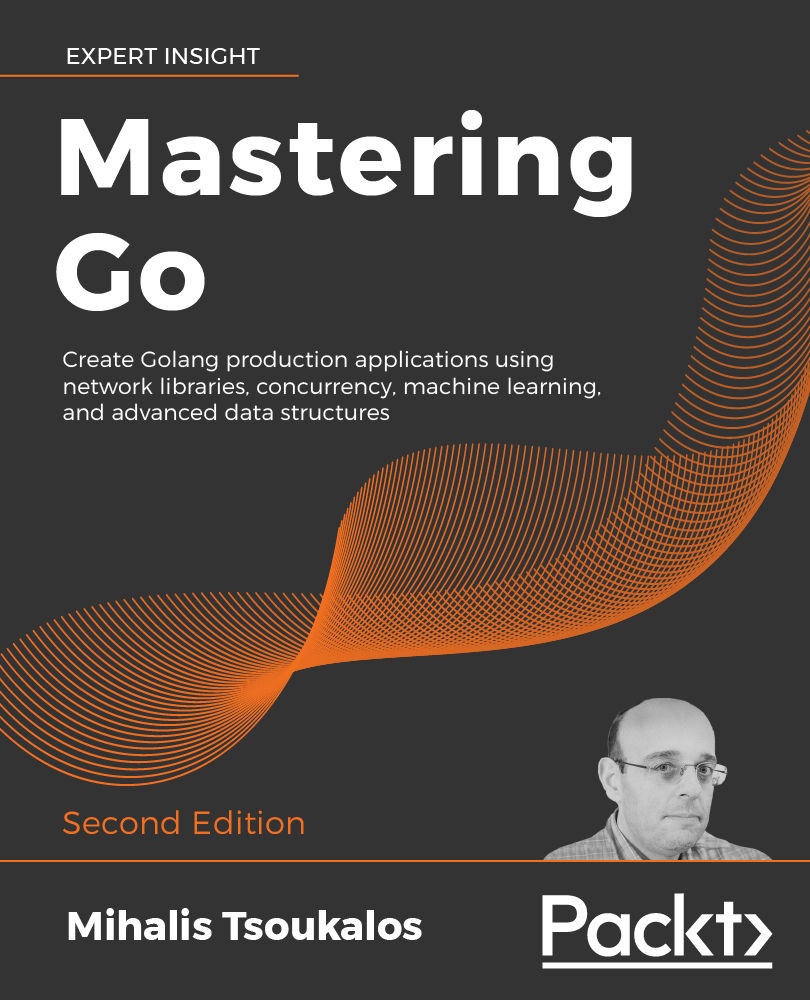This chapter presented three primary topics: Go functions, Go packages, and Go modules. The main advantage of Go modules is that they record the exact dependency requirements, which makes creating reproducible builds easy and straightforward.
This chapter also offered you ample advice about developing good Go packages. It subsequently talked about the text/template and html/template packages, which allow you to create plain text and HTML output based on templates, as well as the go/token, go/parser, and go/scanner packages. Lastly, it talked about the syscall standard Go package that offers advanced features.
The next chapter will discuss two important Go features: interfaces and reflection. Additionally, it will talk about object-oriented programming in Go, debugging, and Go type methods. All of these topics are pretty advanced and you might find them difficult at first...


